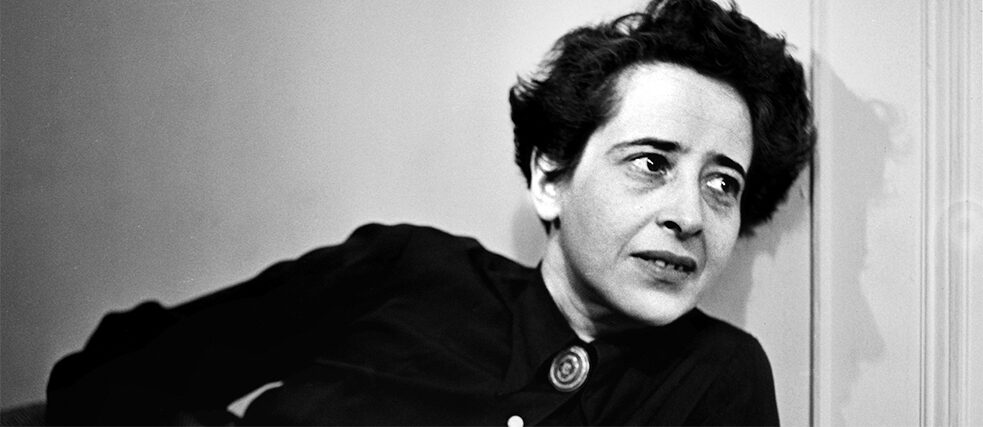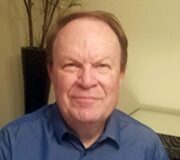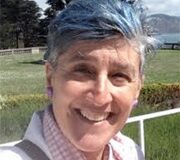Deep-Reading Seminar (in English) with
- Dr. Lisa Stenmark, San Jose State University, USA (online),
- Dr. James Barry Jr., Indiana University Southeast, USA (online),
- Dr. Nguyen Thi Minh (MC), HCMC University of Education (live & online)
The seminar will give thinkers and scholars of political theory an opportunity to explore and discuss their understanding of Hannah Arendt’s thinking. The Goethe-Institut Hanoi provides a space to meet physically and online.
Please apply for your participation by June 25, 2020. Please describe the reason why you wish to participate and how your participation will help others to understand Hannah Arendt’s work. If your application is successful, you will get an invitation and the text for your preparation. The number of participants is limited to 12. A good command of language is of advantage.
RSVP:
Wilfried.Eckstein@goethe.de
Complete text for the deep reading:
For your participation please make use of the two-page introduction into the method of “deep reading”
Hanna Arendt
 Foto: Fred Stein/Corbis © www.philosophersmag.com
Foto: Fred Stein/Corbis © www.philosophersmag.com
(1906–1975) was a German-American philosopher and political theorist. She is one of the most important political philosophers of the twentieth century.
The notion of crisis is central to Arendt’s work. Between Past and Future, is a collection of eight essays on crisis in political thought. The topic on June 27 will be “Crisis in Culture”. The chosen text for July 04 will be ”Crisis in Education”.
About the speakers
James Barry Jr.
 © James Barry Jr.
© James Barry Jr.
James Barry Jr. is Emeritus Professor of Philosophy at Indiana University Southeast. He is of author of Measures of Science (Northwestern University Press) and Co-Editor of Merleau-Ponty: Texts and Dialogues (Humanities Press). He is editor of the journal Arendt Studies published by the Philosophy Documentation Center. He is co-founder and a member of the Board of Advisors of the Hannah Arendt Circle. His most recent articles include “The Growth of the Social Realm in Arendt’s Post-Mortem of the Modern Nation-State” and “The Risk of Total Divergence: Politicized Intelligence and Defactualization in the Age of Imminent War.” He is currently completing two book-length studies, one on the legacies of expropriation and the rise of the state of modern poverty at play in Arendt’s work and the other on the ways in which the loss of land-based communities sets the stage for our post-industrial consumeristic world.
Trained in 19th and 20th century continental philosophy, I came to Hannah Arendt’s work fairly late. Her work opened up new possibilities for understanding our contemporary crises as a legacy of the ambiguous western tradition that we have inherited. Her work represented for me a new way of thinking about our world and ourselves that seemed to lie outside the mainstream of western philosophical practice while it also paid homage to the radical questioning that has always driven the best of the western intellectual traditions. Arendt’s emphasis on our collective capacity to begin something new seems especially important in an age when we are confronted by unprecedented challenges and perplexities, such as climate change and the widespread loss of traditional identities. She reminds us that the future is open so long as we understand our shared responsibility for what lies ahead and behind us.
Lisa Stenmark
 © Lisa Stenmark
© Lisa Stenmark
Lisa Stenmark teaches at San Jose State University. She is the author of Religion, Science and Democracy: A Disputational Friendship, and co-editor (with Whitney Bauman) of the series Religion and Science as a Critical Discourse. She has published numerous papers on religion, science and technology, more recently looking at how certain ways of thinking about “religion and “science” contribute to negative impacts of globalization, particularly in the context of Viet Nam. She is active in the American Academy of Religion, the Arendt Circle, and is a Fulbright Scholar. She has an MDiv/MA from PLTS/ GTU, and a Ph.D. from Vanderbilt.
Lisa Stenmark on Hannah Arendt:
“I have been trying to see the world through Hannah Arendt’s eyes for over 20 years, and while I don't agree with everything she wrote, I find her perspective helps me understand the world better. The Vietnamese will certainly find many aspects of Arendt’s thought helpful as well—including her understanding of modernity, education, and the dangers of consumerism—and I look forward to seeing Arendt through Vietnamese eyes! But her greatest contribution may be her approach—a kind of storytelling that makes it possible for us to think together about global problems, without imposing a global culture.”
Nguyen Thi Minh
 © Nguyen Thi Minh
© Nguyen Thi Minh
Nguyen Thi Minh, a translator of the first book by Hannah Arendt (Between Past in Future) into Vietnamese, is a lecturer (equals to Associate Professor) in the Faculty of Linguistics and Literary Studies, Ho Chi Minh City University of Education. Her main research interests are comparative literature, film adaptation based on subjectivity theory and semiotics. She has participated in collaborative research activities in Japan (2017, 2019) and the United States (2017-2020), participated in organizing and presenting reports at many conferences at home and abroad. She is a translator and co-translator of some classic philosophical publications. She is also the co-founder of "The Ladder - a Learning Space for Community", a space for those who love wisdom to share and make academic knowledge becomes more available to everyone, especially the youngsters in Vietnam.
On Hannah Arendt
I have pursued semiotics for more than 10 years and used this method to study literature and cinema, especially the representation of women in literature and cinema from a comparative perspective. Semiotics has two main sources. The first branch comes from Ferdinand de Saussure and linguistics. The second branch originates from Charles Sanders Peirce and philosophy. That was the reason why I spent a long time studying and translating philosophy. Among modern philosophers, Hannah Arendt can be considered a philosopher of crisis. She suggests a way of thinking in times of crisis: when the old is gone, the new is not yet formed. I am particularly interested in Hannah Arendt's idea of living together and taking care for the world which I feel very relevant to women studies. Arendt will also help me to think and answer many questions for Vietnam today.
Back